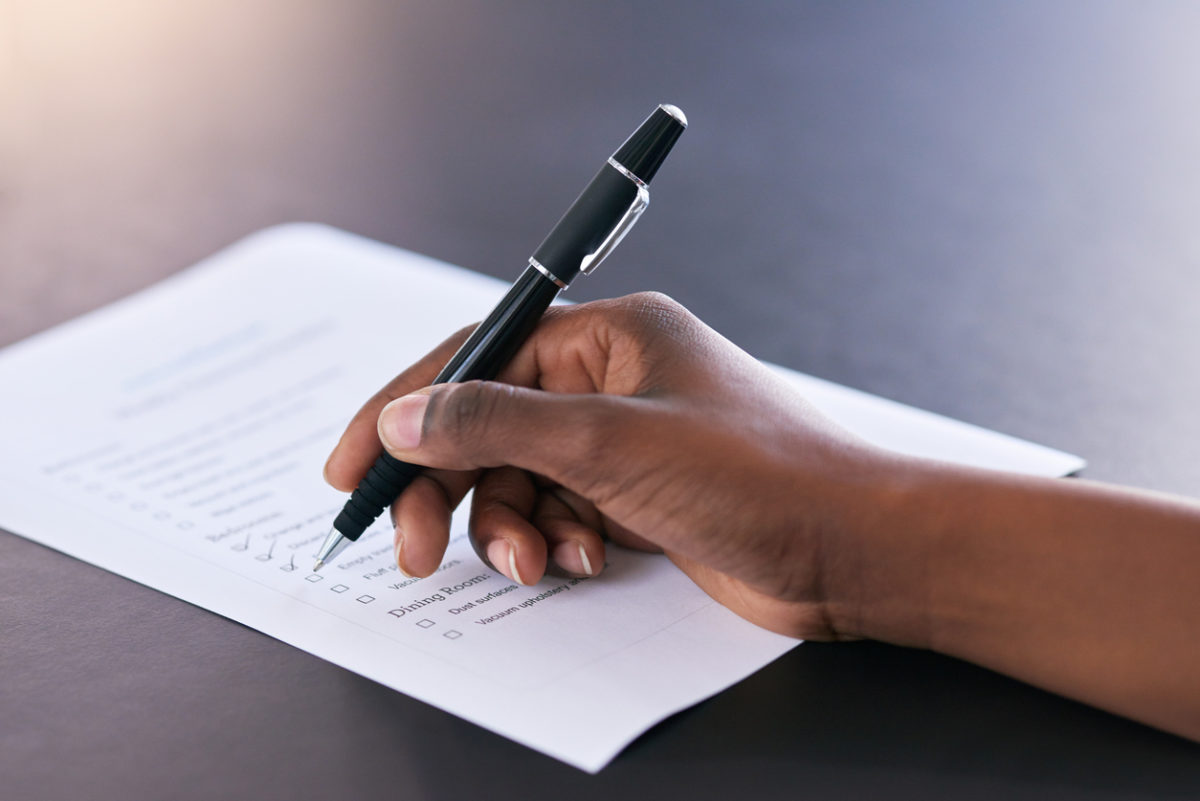Essential Paperwork Needed to Buy a House in the UK

Embarking on the journey of buying a house in the UK can feel like navigating a labyrinth of paperwork and legal jargon. However, with the right preparation, this process can be significantly simplified. This guide outlines the essential paperwork you need to get your hands on to ensure a smooth property transaction.
Proof of Identity and Address

The very first documents you will need to present are:
- Proof of Identity: This could be your passport, driving license, or EU identity card. Your conveyancer will use this to verify your identity, crucial in fighting identity theft.
- Proof of Address: Typically, a utility bill, bank statement, or council tax bill not older than three months will suffice. This confirms where you live, which is vital for mortgage applications and legal proceedings.
Mortgage Application Documents

If you’re financing your purchase with a mortgage, prepare to provide:
- Latest payslips (usually last 3 months): These will show your income stability and capacity to meet mortgage repayments.
- P60 form: A certificate given at the end of the UK tax year, confirming your total earnings. It helps lenders assess your financial reliability.
- Bank Statements (6 months for self-employed): For employed buyers, a three-month statement might be enough, but self-employed individuals might need a longer period to showcase financial health.
- Savings and Investment Statements: This shows any additional resources you might have for the deposit or to assure lenders of your financial capability.
Property-Related Documents

Once you’ve identified a property, several documents related to the house itself become necessary:
- Title Deeds: These legal documents prove property ownership and any legal obligations or restrictions on the property.
- Energy Performance Certificate (EPC): A document rating the property’s energy efficiency, which you need to provide as a seller but should also check as a buyer to anticipate future maintenance costs.
- Search Results: Your conveyancer will conduct searches on local authority, environmental, and drainage information. These uncover any issues that could affect your decision to buy.
- Homebuyer’s Report: While not legally required, this survey can reveal hidden defects that could affect your purchase price negotiations.
Legal Documents

Legal paperwork forms the backbone of the transaction, ensuring everything is above board:
- Contract of Sale: This binds the seller and buyer to the sale, laying out the terms, conditions, and expected completion date.
- Transfer Deed (TR1): The document that officially transfers the property from the seller to the buyer.
- Mortgage Deed: If you’re taking out a mortgage, this legal document secures your lender’s interest in the property.
⚠️ Note: Make sure your conveyancer or solicitor is overseeing all these documents to avoid any legal pitfalls.
Deposit and Financing

The deposit is a significant part of the buying process:
- Proof of Deposit: You’ll need to provide evidence that you have sufficient funds for the deposit, usually 5-20% of the purchase price.
- Gift Letter: If you receive help with the deposit from friends or family, a gift letter confirms the money’s origin and states that repayment is not expected.
- Mortgage Offer: Once your mortgage application is approved, you’ll receive a formal offer from your lender, which should be forwarded to your conveyancer.
Concluding the Transaction

The final stages require additional documents:
- Completion Statement: Issued by your conveyancer, this outlines the total cost of buying the property, including legal fees, stamp duty, and other charges.
- Stamp Duty Land Tax (SDLT) Form: You’ll need to provide this form to the HMRC, detailing your property purchase, its price, and any reliefs or exemptions you’re claiming.
- Registration with Land Registry: After completion, your conveyancer will need to register the change of ownership with the Land Registry, for which they require several documents from you.
To wrap up your home-buying journey in the UK, it's critical to stay organized and proactive with your paperwork. By gathering and preparing all necessary documents, you'll facilitate a seamless purchase, avoiding delays or complications. Understanding the intricacies of each piece of paperwork empowers you to engage confidently in negotiations and the legal side of buying property.
What happens if I can’t provide all the documents?

+
If certain documents are missing or not immediately available, you can work with your conveyancer to find alternatives or provide additional evidence. However, having all documents ready can speed up the process significantly.
Do I need a solicitor or conveyancer for buying a house?

+
While not legally required, hiring a solicitor or conveyancer is highly recommended to handle the complex legal paperwork and ensure everything is done correctly.
What is the significance of the Energy Performance Certificate (EPC)?

+
An EPC rates a property’s energy efficiency, helping potential buyers understand potential energy costs and the home’s environmental impact. Sellers must provide this to buyers, and buyers should check it to anticipate future maintenance or upgrade expenses.



